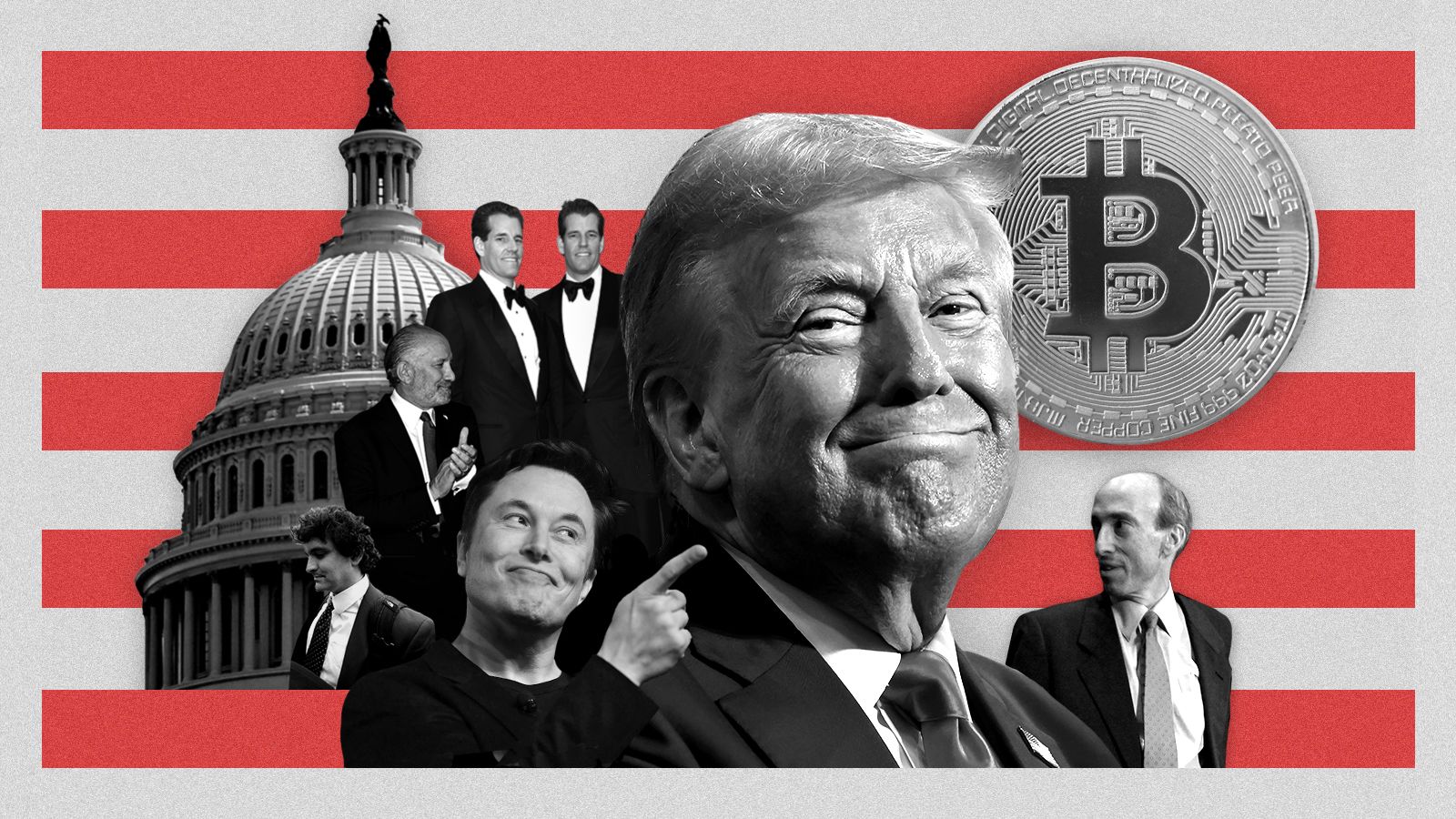The connection between politics and cryptocurrencies often sparks intense discussion, and one figure who has continuously captured the spotlight is Donald Trump. Whether through direct statements about Bitcoin or policy moves that impact global markets, Trump’s actions and stances often ripple across the cryptocurrency space. This article explores the intricate relationship between “Trump and Bitcoin,” highlighting key events and their implications for the evolving digital currency market.
Trump’s Tariff Policies and Their Impact on Bitcoin
Recently, Donald Trump clarified his intentions to impose tariffs on Mexico, Canada, and China, as highlighted in a CoinDesk report. These tariffs, expected to begin next week, already reverberate across traditional financial markets. U.S. stock futures have displayed increased volatility, with some gains trimmed following the announcement.
What’s notable, as reported by CoinDesk, is that while traditional finance (TradFi) falters on tariff-related news, Bitcoin remains surprisingly resilient. Unlike the Nasdaq or S&P 500, Bitcoin and other cryptocurrencies held steady, signaling their growing role as alternative investments during economic uncertainty.
Historically, Bitcoin often reacts either positively or neutrally to market conditions tied to economic or geopolitical instability. Trump’s tariff threats, by potentially unsettling global trade, reinforce Bitcoin’s narrative as a decentralized hedge against traditional financial systems.
Trump’s Past Comments on Bitcoin and Cryptocurrencies
To fully understand Trump’s complicated relationship with Bitcoin, one must look at his history of public statements. Trump has been openly skeptical of cryptocurrencies. He famously tweeted in 2019, saying, “I am not a fan of Bitcoin and other Cryptocurrencies, which are not money and whose value is highly volatile and based on thin air.”
Such comments reflect Trump’s preference for the U.S. dollar as the dominant global currency. His stance largely aligns with the traditional financial establishment, which often views cryptocurrencies, especially Bitcoin, as a disruptive force challenging fiat currencies and traditional banking systems.
Despite his criticism, crypto markets like Bitcoin have thrived amid unpredictability associated with Trump’s economic decisions. His policies often inadvertently drive interest in decentralized systems, whether through trade wars or perceived instability in global markets.
Economic Uncertainty and Bitcoin’s Resilience
One of the most fascinating dynamics between Trump and Bitcoin is how the latter thrives during times of economic uncertainty fueled by Trump’s policies. Cryptocurrency markets, particularly Bitcoin, often behave as a “risk-off” asset when global tensions rise.
For example, during Trump’s earlier trade spats with China, Bitcoin experienced notable price surges. Investors, wary of the economic ripple effects of a trade war, turned to Bitcoin as a store of value. The same dynamic seems to hold now as Bitcoin steadies itself in the face of new tariff announcements.
Additionally, the decentralized nature of Bitcoin offers an appealing alternative to traditional currencies during geopolitical stress. While fiat currencies are heavily influenced by government policy, Bitcoin operates outside these boundaries, making it an attractive option for those seeking financial sovereignty.
Trump and Bitcoin in the Broader Context of Cryptocurrencies
Beyond Bitcoin, Trump’s actions have larger implications for the entire cryptocurrency ecosystem. Policies targeting international trade, sanctions on foreign nations, and shifts in monetary policies under his administration indirectly impacted crypto adoption and innovation.
For instance, tensions with China during Trump’s presidency led to increased scrutiny of blockchain technology and cryptocurrency mining. This paved the way for new discussions on regulating crypto markets while simultaneously accelerating innovation in blockchain-based systems as countries sought economic independence.
Furthermore, Trump’s unpredictable policies often attracted younger generations to financial alternatives like Bitcoin and DeFi (decentralized finance). A growing number of millennials and Gen Z now perceive cryptocurrencies as the future of finance, in part due to volatility in traditional markets exacerbated by political turbulence.
Navigating the Future: The Interplay of Politics and Crypto
The intersection of “Trump and Bitcoin” urges us to examine the broader implications of politics on cryptocurrency. While Trump’s policies create uncertainty, they also highlight the advantages of decentralized systems like Bitcoin. By operating independently of governmental influence, Bitcoin has proven time and again to withstand turbulent economic environments.
Whether Trump or other political figures openly support cryptocurrencies, the continuing relationship between macroeconomic policies and crypto markets cannot be ignored. If anything, Bitcoin’s steady performance during moments of political tension underscores its growing role in the global economic framework.
Final Thoughts
The keyword “Trump and Bitcoin” encapsulates a nuanced relationship where political actions, skepticism, and unintended consequences shape the dynamic cryptocurrency market. From tariff threats to direct criticism of Bitcoin, Trump’s influence on financial markets indirectly underscores the relevance and resilience of cryptocurrencies like Bitcoin.
For investors, this interconnectedness offers an important lesson: Bitcoin remains a relevant asset even amid the most unpredictable political climates. As we look ahead, one thing is clear – Bitcoin’s place in the financial world continues to grow, regardless of political challenges.








